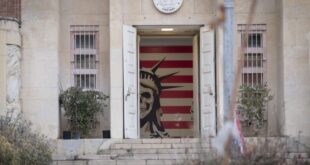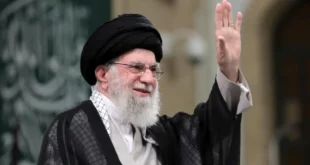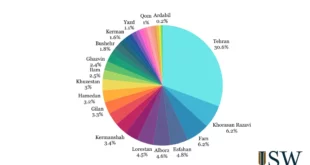 The Iranian president, Mahmoud Ahmadinejad, was under pressure to perform a U-turn on petrol rationing yesterday after the restriction prompted violent protests at filling stations across the country this week.
The Iranian president, Mahmoud Ahmadinejad, was under pressure to perform a U-turn on petrol rationing yesterday after the restriction prompted violent protests at filling stations across the country this week.
MPs said they would press the government to alter or even scrap the plan after angry citizens set fire to at least a dozen petrol stations in Tehran and chanted slogans against President Ahmadinejad following Tuesday night’s sudden introduction of quotas.Â
Banks, supermarkets and fire engines were also attacked while further disturbances were reported in other big cities, including Isfahan and Shiraz.
There were unconfirmed reports that three people were killed in the violence, which led to 80 arrests.
In a sign of official concern that the disturbances might spread, the government temporarily closed the country’s mobile phone text messaging network after widespread circulation of a text urging protestors to gather in Tehran’s Valiasr Square.
The unrest was triggered by an announcement on state television on the rationing, prompting a rush by drivers to fill their tanks. Motorists are restricted to a monthly limit of 100 litres (22 gallons) for the next four months while cab drivers must not exceed 800 litres.
Iran, the world’s fourth largest oil producer, imposed rationing to try to cut the estimated £5bn annual cost of providing massively subsidised petrol, which has to be imported because the country lacks refinery capacity. While parliament has already approved the plan, MPs had urged the government to delay the scheme amid fears over its social and economic impact. However, some analysts say it has become more urgent because of the prospect of further UN security council sanctions over Iran’s nuclear programme.
Nevertheless, there was anger yesterday that the government had implemented the scheme without prior notice in an apparent attempt to prevent fuel hoarding. Esmaeil Ahmadi-Moqaddam, the chief of police, said its implementation had even been kept secret from his officers, so there had been no time to provide extra security for the filling stations.
MPs attacked the failure to allow motorists to buy fuel at higher free market prices and said that if disturbances continued parliament might be recalled from the three-week recess that began yesterday.
Kamal Daneshyar, chairman of the parliamentary energy committee, said: “We have told the government … that rationing with this mechanism should not be implemented, but they paid no attention. Petrol rationing will not last long and will be only a short-term measure. Free-market prices should be offered sufficiently.”
The decision has already had an impact on Tehran’s congested roads, with traffic cut as cars are left at home to save fuel. Taxi drivers have responded by raising fares.
Issa Saharkhiz, a political analyst, suggested the impact on the fortunes of Mr Ahmadinejad’s could be equally dramatic. “This will damage [him] and the people and groups around him, maybe even the supreme leader. He is not going to be a candidate for a second presidential term.”
 Eurasia Press & News
Eurasia Press & News



